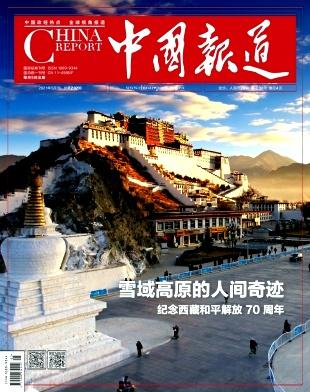Economic Interdependence Since COVID-19: China and South Asia
IF 0.7
Q3 AREA STUDIES
引用次数: 2
Abstract
In the backdrop of COVID-19-induced geo-political backlash against China, the article makes an assessment of the nature of economic interdependence of South Asian nations with China. Though COVID-19-induced lockdown led to a decline in trade with China, it recovered quickly in subsequent months. In the case of India, even after imposing restrictive measures, trade with China was found to bounce back indicating to a greater dependence on China. Further, asymmetry in economic engagement with China could be observed for several of the South Asian nations. Chinese investment in the region remained muted during the pandemic. However, strategic involvement in South Asia by China, and other powers, increased considerably which has been manifested by her provisioning of economic incentives and COVID-19-related aid. In the light of increasing strategic influence, South Asian countries desirous of benefitting from foreign trade and investment in their respective economies will need to encourage free and fair competition rather than towing geo-political lines so that sustainable economic gains can be made, which will require strengthening of various market supporting institutions in the respective economies. India’s economic strategy will also assume significance in boosting confidence and increasing the level of integration within South Asia.新冠肺炎以来的经济相互依存:中国和南亚
在新冠疫情引发的针对中国的地缘政治反弹的背景下,本文对南亚国家与中国经济相互依存的性质进行了评估。尽管新冠疫情引发的封锁导致与中国的贸易下降,但在随后的几个月里迅速恢复。就印度而言,即使在实施限制性措施后,与中国的贸易也出现了反弹,这表明对中国的依赖性更强。此外,在几个南亚国家,可以观察到与中国经济接触的不对称性。在疫情期间,中国在该地区的投资依然疲软。然而,中国和其他大国在南亚的战略参与大幅增加,这体现在她提供的经济激励和与新冠肺炎相关的援助上。鉴于战略影响力不断增强,希望从各自经济体的对外贸易和投资中受益的南亚国家将需要鼓励自由和公平竞争,而不是拖泥带水,以实现可持续的经济收益,这将需要加强各自经济体中的各种市场支持机构。印度的经济战略也将在提振信心和提高南亚一体化水平方面发挥重要作用。
本文章由计算机程序翻译,如有差异,请以英文原文为准。
求助全文
约1分钟内获得全文
求助全文
来源期刊

中国报道
AREA STUDIES-
CiteScore
1.70
自引率
0.00%
发文量
9353
期刊介绍:
China Report promotes the free expression and discussion of different ideas, approaches and viewpoints which assist a better understanding of China and its East Asian neighbours. A quarterly journal of the Institute of Chinese Studies, it attempts to provide a fresh approach which goes beyond the strictly utilitarian area studies without becoming antiquarian. Launched in 1964, China Report has, over the years, widened its interests and aims and transformed itself into a scholarly journal that seeks a better understanding of China and its East Asian neighbours - particularly their cultures, their development and their relations with China. It is an indispensable source of information on China, its society and culture.
 求助内容:
求助内容: 应助结果提醒方式:
应助结果提醒方式:


